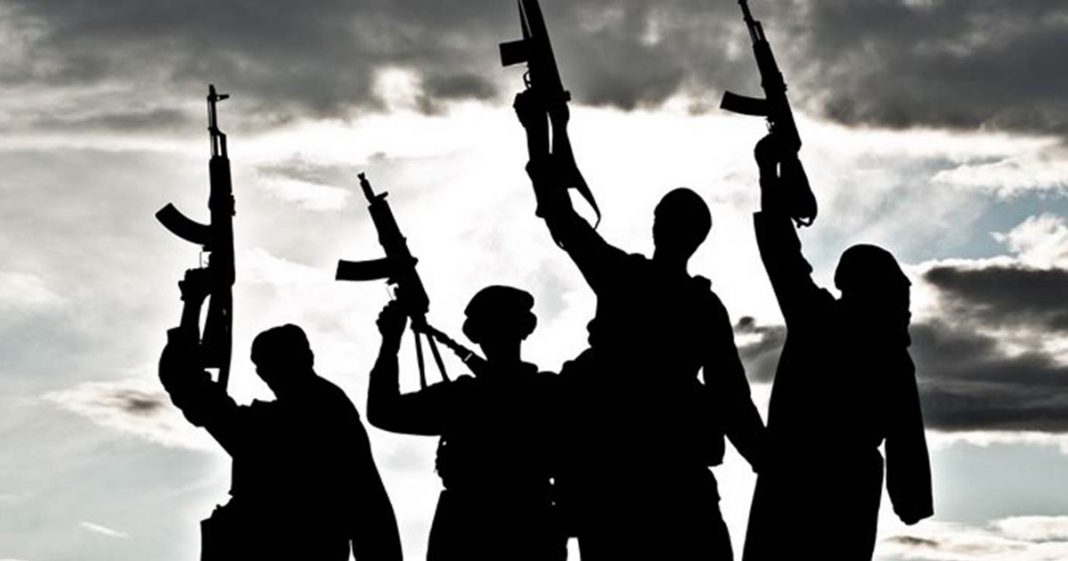The Financial Action Task Force (FATF) is supposed to plug money laundering. It is not meant to dubiously declare a person or entity terrorist to impose financial restrictions on it. According to an Islamabad-based think tank Tabadlab, Pakistan sustained a total of US$ 38 billion in economic losses due to FATF’s decision to thrice place the country on its grey list since 2008. In a way, the whole Pakistani nation was punished by declaring some religious outfits “terrorists”.
Jammu and Kashmir is a disputed state, notwithstanding India’s occupation of some parts of it. Flouting international resolutions declaring Kashmir a disputed territory, India annexed the part under its illegal occupation a centrally controlled territory ruled by New Delhi and the Kashmiris started a movement for freedom.
In the course of time, some religious organizations in Pakistan began to support the freedom movement in India. India calls the freedom movement “terrorism” and by corollary whosoever supports it.
Read more: Kashmiris and their indomitable fighting spirit
Hafiz Mohammad Saied runs a few non-government welfare organizations. Former President Musharraf, in an interview, pointed out that Saeed’s organizations are the best in Pakistan. Through its leverage with the USA and some other countries, India managed to get Saeed designated a terrorist by the United Nations. Without substantial incriminating evidence, Saeed was portrayed as the mastermind of the Mumbai attacks. The fact however remains that the Mumbai trials lacked transparency.
To create financial difficulties for Pakistan, India through its “friends” managed to get Pakistan on the Financial Action Task Force watch list for inability to take adequate action against Hafiz Saeed.
No definition for terrorism?
Council of Europe Commissioner for Human Rights Thomas Hammarberg (2008) observed that “arbitrary procedures for terrorist black-listing must now be changed”. There is no definition of terrorism. Mukti Bahini in former East Pakistan was a freedom fighter to India but a terrorist to Pakistan. Cuban terrorists were decorated in the USA as “freedom fighters”.
Political expediency, not fairness is the basis of the “terrorism” definition. To the USA, the Taliban were freedom fighters as long as they fought the erstwhile Soviet Union in Afghanistan. The US began to subsequently regard them as “terrorists” when they allegedly sheltered international “terrorists”. The Taliban were designated terrorists under resolutions 1267 and 1373. The US used its influence to the hilt to get them declared so.
Read more: Why the Taliban are not terrorists? – Imran Jan
According to the principles of penology, an offense has to be first defined before it is made punishable. In the absence of a global, universally acceptable definition of the word ‘terrorism’, any figment of imagination could be stretched to mean terrorism.
Unless the word ‘terrorism is defined, it will not be possible to distinguish it from a freedom movement, protest, guerrilla warfare, subversion, criminal violence, para-militarism, communal violence, or banditry. A nation cannot be punished for individual acts of terrorism, according to principles of natural justice and penology.
In the historical context, the term meant different things to different individuals and communities. The oldest ‘terrorists’ were holy warriors who killed civilians. Recent examples of religious terrorists are Aum Shinrikyo (Japanese), Rabbi Meir Kahane and Baruch Goldstein, and Yigal Amir (Jews).
The Jewish-controlled media describes Hezbollah and Hamas as ‘religious terrorists’. In the first century A.D Palestine, the Jews publicly slit the Romans’ throats, in the seventh century India, the thugs strangulated gullible passersby to please the Hindu Devi Kali, and the 19th-century adherents of Narodnaya Volya (People’s Will) mercilessly killed their pro-Tsar rivals.
Read more: Jews dominate US media, finance & internet: Israel angry at Chinese state TV
Most historians believe that the term ‘terrorism’ received international publicity during the French reign of terror in 1793-94.
It is now common to dub one’s adversary a ‘terrorist’. Doing so forecloses the possibility of political negotiation, and gives the powerful definer the right to eliminate the ‘terrorist’.
India’s self-confessed “terrorism”
Former East Pakistan was not a disputed state like Jammu and Kashmir. Yet, India tried tooth and nail to stoke an insurgency in East Pakistan. Confessions of former Research and Analysis Wing’s officers and diplomats bear testimony to India’s involvement in bloodshed in East Pakistan. B. Raman (A RAW officer), in his book The Kaoboys of R&AW: Down Memory Lane makes no bones about India’s involvement up to the level of prime minister in Bangladesh’s insurgency.
There is a cliche “One man’s terrorist is another man’s freedom fighter”. “Terrorism” is focused from narrow angles. Some definitions focus on the terrorist organizations’ mode of operation. Others emphasize the motivations and characteristics of terrorism, the modus operandi of individual terrorists.
Read more: Justice demand continues after Bangladesh-India border killing
In their book Political Terrorism, Schmidt and Youngman cited 109 different definitions of terrorism, which they obtained in a survey of leading academics in the field. From these definitions, the authors isolated the following recurring elements, in order of their statistical appearance in the definitions.
The order is; Violence, force (appeared in 83.5% of the definitions); political (65%); fear, emphasis on terror (51%); threats (47%); psychological effects and anticipated reactions (41.5%); the discrepancy between the targets and the victims (37.5%); intentional, planned, systematic, organized action (32%); methods of combat, strategy, tactics (30.5%).
Former RAW officer’s disclosures
In a published letter, RK Yadav made the startling revelation that India’s prime minister Indira Gandhi, parliament, RAW, and armed forces acted in tandem to dismember Pakistan. It is eerie that no international agency declared India a “terrorist” for its nefarious activities.
His confessions in his letter are corroborated by B. Raman in his book The Kaoboys of R&AW. He reminds that the Indian parliament passed a resolution on March 31, 1971, to support the insurgency.
Indira Gandhi had then confided with Kao that in case Mujib was prevented, from ruling Pakistan, she would liberate East Pakistan from the clutches of the military junta. Kao, through one RAW agent, got Fokker Friendship, the Ganga, and Indian Airlines hijacked from Srinagar to Lahore.
Read more: Confessions of RAW officers- the diplomats in disguise
Why the hullabaloo about the insurgency in Kashmir if India’s intervention in East Pakistan was justified?
Role of Kulbushan Jadhav
Jadhav was an Indian Navy officer, attached to RAW. His mission was to covertly carry out espionage and terrorism in Pakistan. Pakistan also alleged there were Indian markings on arms deliveries to Baloch rebels pushed by Jadhav.
To India’s chagrin, India’s investigative journalists confirmed from Gazettes of India that he was commissioned in the Indian Navy in 1987 with the service ID of 41558Z Kulbhushan Sudhir. A later edition of the Gazette showed his promotion to the rank of commander after 13 years of service in 2000.
His passport, E6934766, indicated he traveled to Iran from Pune as Hussein Mubarak Patel in December 2003. Another of his passport, No. L9630722 (issued from Thane in 2014), inadvertently exposed his correct address: Jasdanwala Complex, old Mumbai-Pune Road, cutting through Navi Mumbai. The municipal records confirmed that the flat he lived in was owned by his mother, Avanti Jadhav.
Read more: Indian magazine Frontline acknowledges Jadhav as spy on RAW payroll
Furthermore, in his testimony before a Karachi magistrate, Karachi underworld figure Uzair Baloch confessed he had links with Jadhav. India’s prestigious Frontline surmised that Jadhav still served with the Indian Navy.
Gazette of India files bore no record of Jadhav’s retirement. India told the International Court of Justice (ICJ) that Jadhav was a retired naval officer. But, it refrained from stating exactly when he retired. The spy initially worked for Naval Intelligence, but later moved on to the Intelligence Bureau. He came in contact with RAW in 2010.
Through Jhadav, India wanted to replay the Mukti Bahini experience in Balochistan and Khyber Pakhtunkhwa.
Read more: Creation of Bagladesh: will the true scale of the tragedy ever be know?
In line with India’s security czar Ajit Doval’s Doctrine, RAW aims at fomenting insurgency in Pakistan’s sensitive provinces. Doval is inspired by India’s nefarious efforts which resulted in the secession of East Pakistan. Naila Baloch’s `free Balochistan’ office has been working in New Delhi since 23 June 2018. BJP MLAs and RAW officers attended its inauguration.
Involvement in Afghanistan
India too trained Afghan Northern Alliance fighters. India’s ambassador Bharath Raj Muthu Kumar, with the consent of then foreign minister Jaswant Singh, coordinated military and medical assistance that India was secretly giving to Massoud and his forces.
Helicopters, uniforms, ordnance, mortars, small armaments, refurbished Kalashnikovs seized in Kashmir, combat and winter clothes, packaged food, medicines, and funds through his brother in London, Wali Massoud, were delivered circuitously with the help of other countries who helped this outreach.
Read more: Exposed: Indian terrorists are fighting in Afghanistan and Syria, Raffaello Pantucci
When New Delhi queried about the benefit of costly support to Northern Alliance chief Massoud, Kumar explained, “He is battling someone we should be battling. When Massoud fights the Taliban, he fights Pakistan.”
India is the one sponsoring terrorism
It is questionable why supporting the ongoing freedom movement in the occupied Kashmir is “terrorism”, but not India’s support to militant groups in Pakistan, Afghanistan, and erstwhile East Pakistan.
India portrays the freedom movement in Kashmir as “terrorism.” What about India’s terrorism in neighboring countries? Will the world take notice of confessions by India’s former diplomats. The conduct of Indian diplomats amounted to state-sponsored terrorism.
For one thing, India should close the “Free Balochistan” office on its soil, and stop resuscitating propaganda skeletons of pre-Bangladesh days.
Read more: UN must call out India on its state-sponsored terrorism in Pakistan
Unlike Kashmir, East Pakistan was not a disputed territory. It was an integral part of Pakistan. But, India harbored, nurtured, trained, and armed Bengali “freedom fighters” on Indian soil.
Mr. Amjed Jaaved has been contributing freelance for over fifty years. His articles are published in dailies at home (The News, Nation, etc) and abroad (Nepal. Bangladesh, Sri Lanka, et. al.). He is the author of eight books including Kashmir: The Myth of Accession. The views expressed in the article are the author’s own and do not necessarily reflect the editorial policy of Global Village Space.














